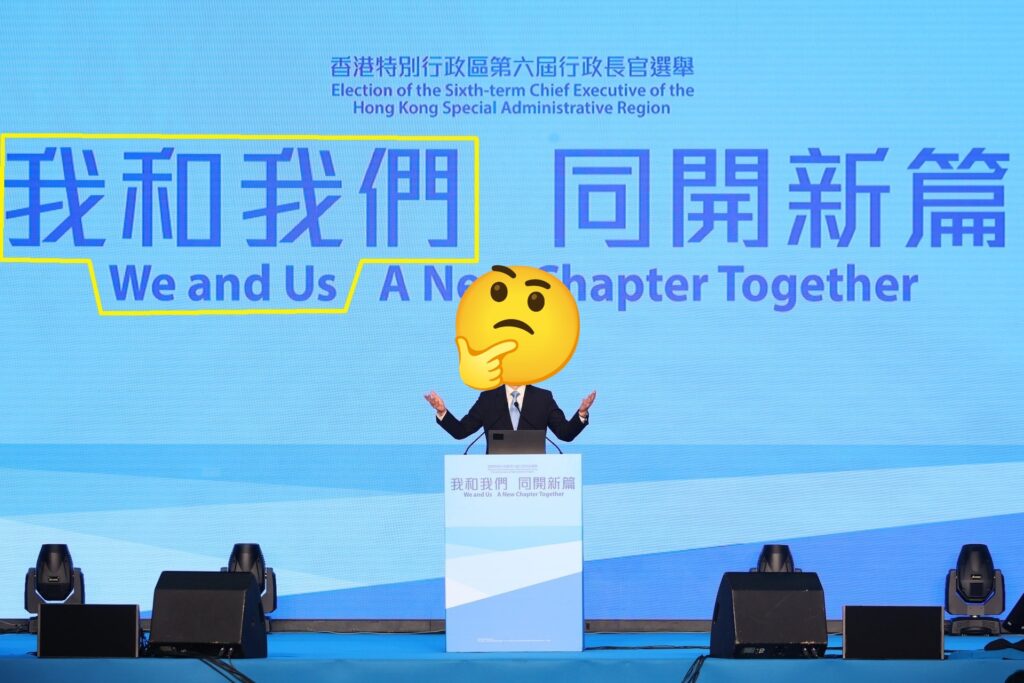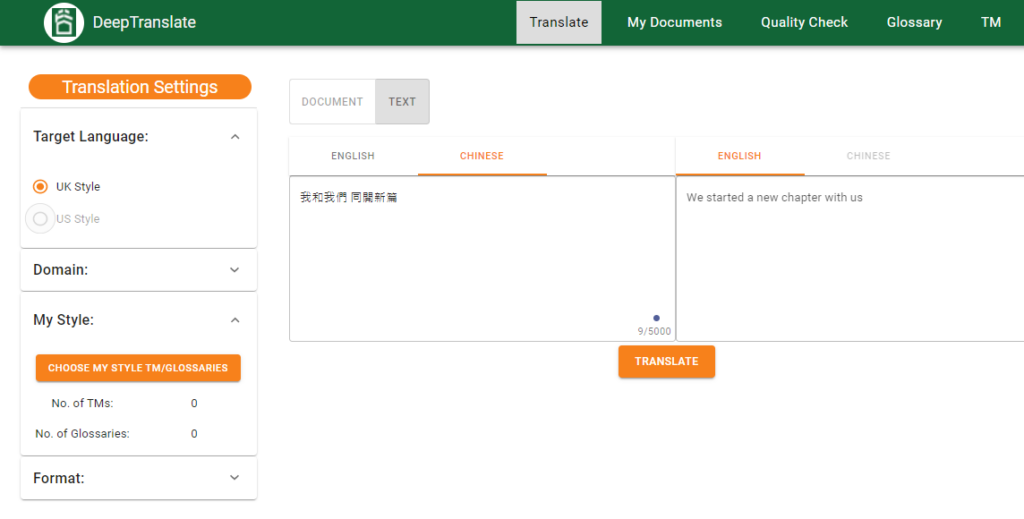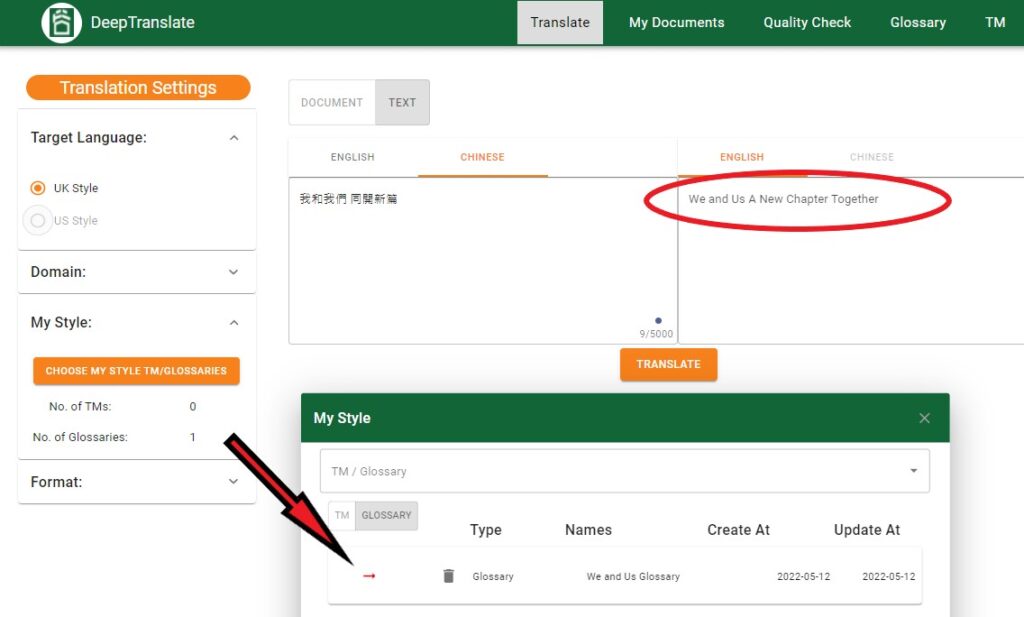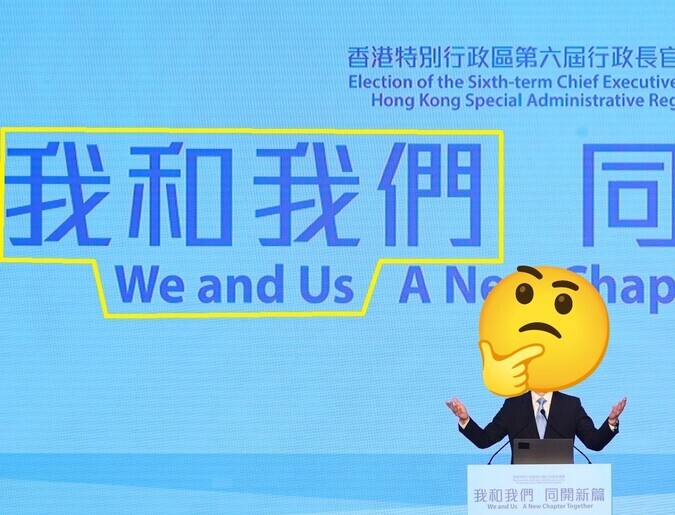Published on 12 May 2022 by Jeffrey Wan

The bilingual slogan of Hong Kong’s Chief Executive-elect John Lee’s earlier campaign, “我和我們” and “We and Us” aroused lively discussions among netizens as it seemed to look a bit weird in terms of logic, grammar and translation. Let’s set aside logic and grammar, purely translation-wise, could this issue be possibly avoided if his team used machine translation?
In fact, in contrast to manual translation, machines translation comes short as it cannot translate from a subjective perspective like human do. It may not be quite applicable to soft texts like promotional slogans and advertisements, which may probably require quite some manual post-editing or even copywriting. In particular, DeepTranslate’s AI translation engine mainly focuses on the financial domain, and financial translation takes accuracy as the priority. Our AI technology will therefore leverage our massive database of financial documents to generate the most accurate and common translations. So it is understandable that machine can hardly read human’s mind and translated “我和我們” into “We and Us”.
However, it is worth noting that when we tried to pop the pairs of “我和我們” vs “We and Us” and “同開新篇” vs “A New Chapter Together” into the Excel as a glossary, and then import the glossary into DeepTranslate’s translation system, the system applied the glossary and translated “我和我們 同開新篇” into the corresponding “We and Us A New Chapter Together”. As such, a glossary can effectively ensure consistency of use of words, even for translating financial documents including annual reports, prospectuses and fund reports, etc.
It seems that in addition to paying more attention to the language, maybe John Lee’s team could also consider giving the glossary function a go!

▲ Without a glossary, despite perfect grammar, the machine translation is still different from human’s writing.

▲ The AI system can follow the glossary applied and generate a corresponding translation.

